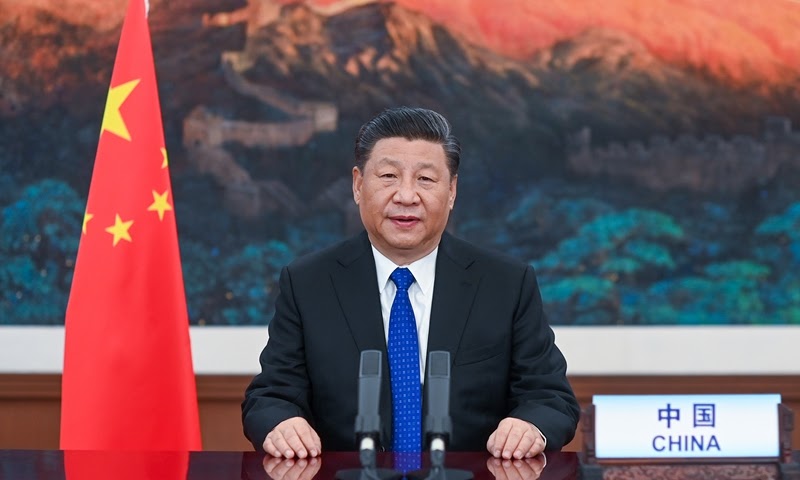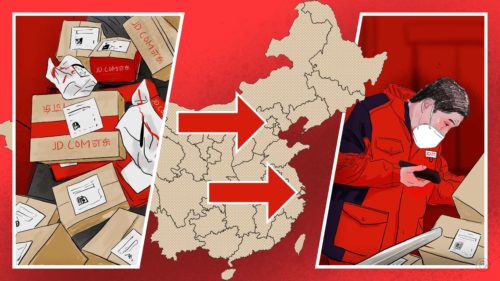Xi defends Beijing and calls for ‘review of the global response to COVID-19 after it is brought under control’

Today, the World Health Organization began its most consequential annual World Health Assembly since the organization’s founding. A highlight of the event was an address by Chinese leader Xí Jìnpíng 习近平, in which he defended Beijing’s response to the coronavirus and urged aid to developing countries now in the middle of COVID-19 outbreaks.
Xi’s speech was covered on Xinhua (English; Chinese), where the full text of his speech was also published in English and Chinese. Here are the points that stand out to us:
- Defending Beijing: “All along, we have acted with openness, transparency and responsibility. We have provided information to WHO and relevant countries in a most timely fashion. We have released the genome sequence at the earliest possible time. We have shared control and treatment experience with the world without reservation. We have done everything in our power to support and assist countries in need.”
- Praising WHO: “At this crucial juncture, to support WHO is to support international cooperation and the battle for saving lives as well. China calls on the international community to increase political and financial support for WHO so as to mobilize resources worldwide to defeat the virus.”
- Supporting Africa: “Developing countries, African countries in particular, have weaker public health systems. Helping them build capacity must be our top priority in COVID-19 response.” Here Xi also highlighted China’s international contributions: “At present, 46 resident Chinese medical teams are in Africa helping with COVID-19 containment efforts locally.”
- Calling for a global “review”…but later: “China supports the idea of a comprehensive review of the global response to COVID-19 after it is brought under control to sum up experience and address deficiencies. This work should be based on science and professionalism, led by WHO and conducted in an objective and impartial manner.”
Xi also said that China “will provide $2 billion over two years to help with COVID-19 response and with economic and social development in affected countries, especially developing countries,” and that “COVID-19 vaccine development and deployment in China, when available, will be made a global public good.”
China’s support for the “idea of a…review of the global response” is the most significant point of Xi’s speech. China had vehemently pushed back against calls for international investigations, especially from Australia, but as the Washington Post reports:
China’s opposition has melted in recent days as international support for an inquiry grew to include Russia, Turkey and European and African coalitions, and drafts of the proposed resolution showed a focus on international collaboration to manage the pandemic and relatively limited emphasis on questioning its source.
However, the idea that the investigation should “address deficiencies” in the global response is sure to lead to scrutiny of the Trump administration’s response — which was catastrophically mishandled — in addition to Beijing’s. And WHO may not be in a rush to begin the investigation, with its president, Tedros Adhanom Ghebreyesus, saying he “will initiate an independent evaluation at the earliest appropriate moment,” per Deutsche Welle.
The $2 billion cash commitment, though the recipient of that money was not specified, would be more than double what the U.S. committed to WHO in 2018–2019, the Washington Post points out. According to Axios, President Trump is considering making his temporary freeze on WHO funding permanent.
- We have to ask: Is refusing to fund international efforts to fight a pandemic a “deficiency” in pandemic response? Washington might not like the results of the international investigation that it pushed for.
Taiwan backs out of its bid for WHO observer status
Taiwan, which has been increasingly sidelined in international forums by the People’s Republic of China, had campaigned to regain its observer status in the World Health Assembly that it held up until 2016. The U.S., Japan, Canada, the U.K., France, Germany, Australia, and New Zealand sent a joint letter to WHO head Ghebreyesus in favor of Taiwan’s participation, Focus Taiwan reports.
- But despite gaining the support of “nearly 15 countries” to participate, “Taiwan has said that it will wait until later in the year, when meetings can be longer and the virus is better contained, to press for its participation in the assembly,” per Deutsche Welle.






